Travis Coan
University of Exeter
Augmented CARDS: A machine learning approach to identifying triggers of climate change misinformation on Twitter
Apr 24, 2024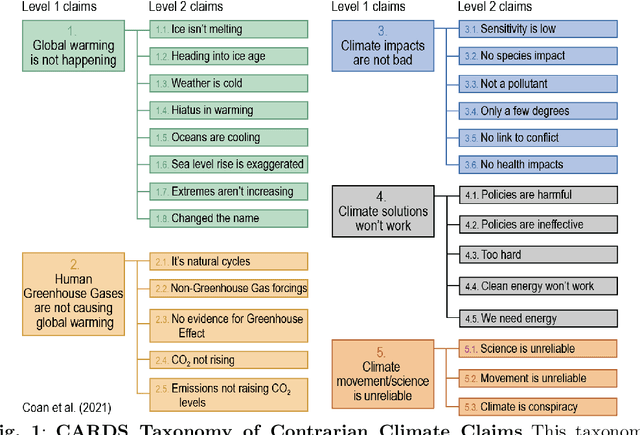
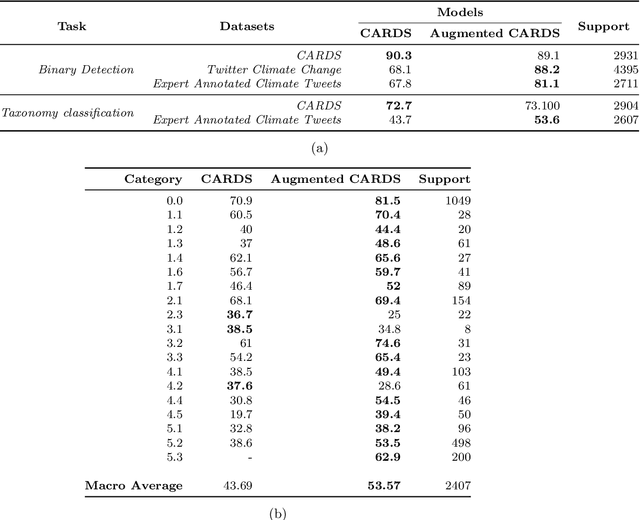
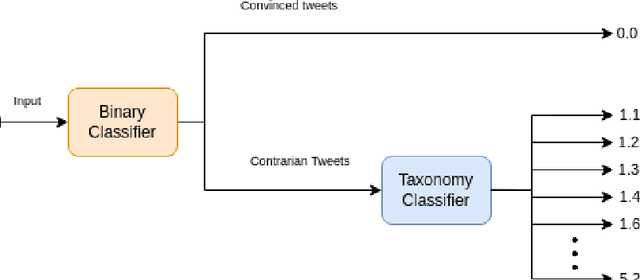
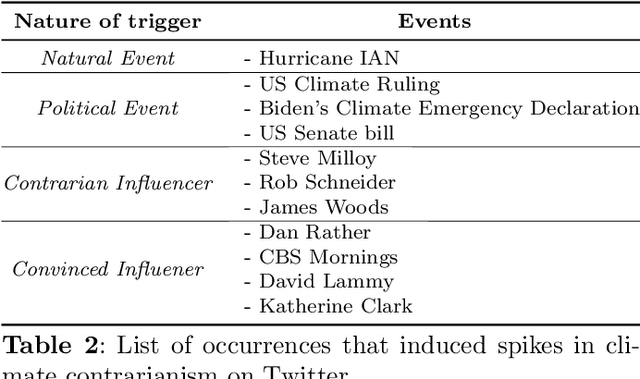
Abstract:Misinformation about climate change poses a significant threat to societal well-being, prompting the urgent need for effective mitigation strategies. However, the rapid proliferation of online misinformation on social media platforms outpaces the ability of fact-checkers to debunk false claims. Automated detection of climate change misinformation offers a promising solution. In this study, we address this gap by developing a two-step hierarchical model, the Augmented CARDS model, specifically designed for detecting contrarian climate claims on Twitter. Furthermore, we apply the Augmented CARDS model to five million climate-themed tweets over a six-month period in 2022. We find that over half of contrarian climate claims on Twitter involve attacks on climate actors or conspiracy theories. Spikes in climate contrarianism coincide with one of four stimuli: political events, natural events, contrarian influencers, or convinced influencers. Implications for automated responses to climate misinformation are discussed.
Using Semantic Similarity and Text Embedding to Measure the Social Media Echo of Strategic Communications
Mar 29, 2023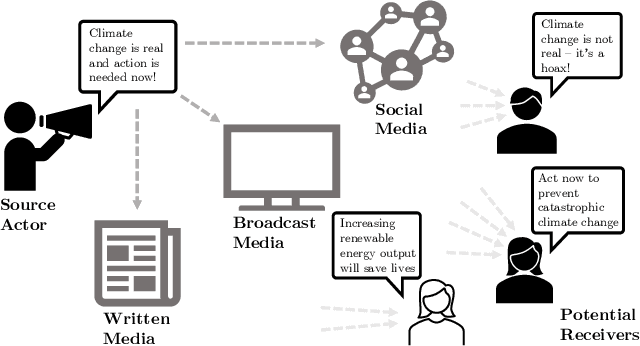
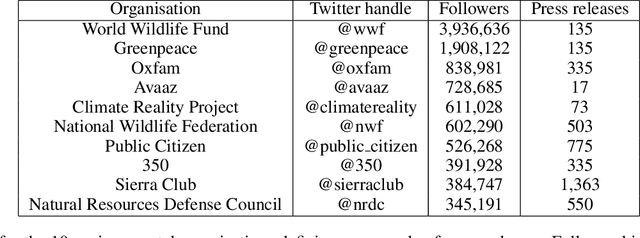
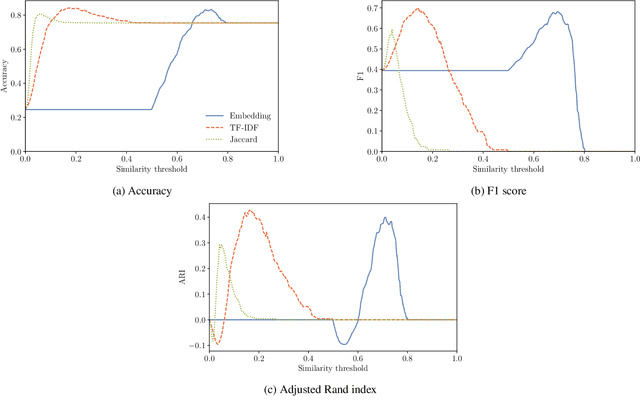
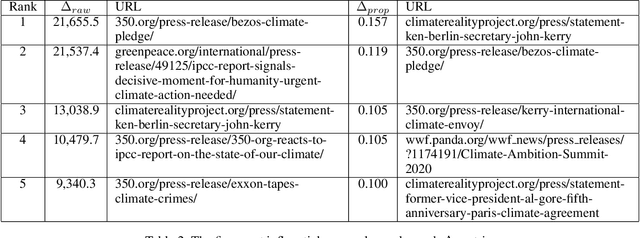
Abstract:Online discourse covers a wide range of topics and many actors tailor their content to impact online discussions through carefully crafted messages and targeted campaigns. Yet the scale and diversity of online media content make it difficult to evaluate the impact of a particular message. In this paper, we present a new technique that leverages semantic similarity to quantify the change in the discussion after a particular message has been published. We use a set of press releases from environmental organisations and tweets from the climate change debate to show that our novel approach reveals a heavy-tailed distribution of response in online discourse to strategic communications.
 Add to Chrome
Add to Chrome Add to Firefox
Add to Firefox Add to Edge
Add to Edge